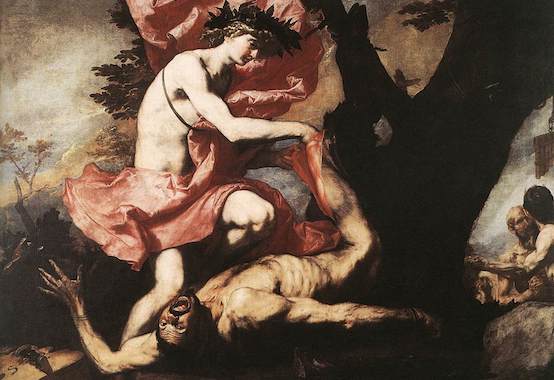In Praise of Muscular Poets

Mark Edmundson’s “Poetry Slam” in last year’s Harper’s was the latest in a series of laments for the state of contemporary poetry. Edmundson bemoaned the insularity of contemporary poetry and the self-centered preoccupation with “voice.”
Other recent essays in this genre: In 1998, Stephen Burt noted the rise of “elliptical poetry”—the use of “verbal gizmos…to undermine the coherence of speaking selves”—and argued in 2009 that poets should return to describing objects in the tradition of William Carlos Williams. In 2010, David Yezzi argued that poets should return to the elements of drama—character, setting, plot. A few years earlier, Tony Hoagland had put his money on narrative—returning to clear, compelling stories in poetry.
There is some good advice in all of these suggestions, and the one unifying idea in each is that the fragmented, indeterminate, blinkered, jargon-riddled lyric needs to go. Too much contemporary poetry still reflects the popularity of “theory” and exhibits the lack of experience that causes poets to replace emotional insight with verbal tricks and appropriation.
But let’s look on the bright side, shall we? Two late twentieth-century poets whose work is in stark (and refreshing) contrast to the above are Vernon Scannell and Alan Dugan—hard-as-nails, blue collar poets, whose poems are direct but evocative, crass but touching, simple but philosophical, personal but universal. Both were born in the 1920s, both served in the Second World War, and both had an affection for the down-and-out and the defeated.
Scannell, who is English, and who taught school regularly (or somewhat regularly) to support his family, was often drunk and would get into bar fights. (He had fought briefly as a professional boxer.) He was arrested for desertion during the war (though not while in battle) and for drunk driving later in life. While he was in jail at one point, his ten year-old daughter wrote to ask him what a “jailbird” was. He responded:
His plumage is dun,
His appetite indiscriminate.
He has no mate.
His nest is built of brick and steel;
He sings at night
A long song, sad and silent.
He cannot fly.
That last line is classic Scannell—honest, touching, almost entirely defeated except for the pleasure he no doubt took in how he formulated that defeat. In a poem for his son, who died in a motorcycle accident at 34, Scannell writes:
Now all the words, like last year’s leaves
Rustle senseless in the dirt,
These strings and woodwinds adumbrate
Something of our grief and hurt.
For Scannell, poetry, at its best, is like those “strings and woodwinds”—reflecting the real pain (and the occasional joys) of life. If it doesn’t, if it is unrelated to the nitty-gritty things of life like death, it is useless.
Blunt honesty, and a strong sense of poetry’s necessary relationship to reality, is something Alan Dugan shares with Scannell. Take his “Qualifications of Survivors,” for example. Dugan’s direct, concise vernacular captures the animal pursuit of survival in all its indignity:
Hide in cesspools, sleep well
on broken glass, and eat
shit. Kiss the whips,
hold the wife for rape,
and have good luck:
stumble behind a lamb
before the bomb bursts
and crawl out of the wreck
to be the epitaph:
“The good ones die first,
but I am not so bad:
Americans are worse.”
In a latter poem, “Speech to the Student Clowns at the Circus Clown School at Sarasota, Florida,” which is clearly addressed to writing students, Dugan admonishes his readers that “Art must be ugly or lovely or both / to be beautiful, but not nice, terrible / in its pitiful humors, but not cute”:
You innocents who want to play the clown
should be wounded combat veterans first.
You have to get the gut feeling, how,
when the fallen gladiator with a face
white in shock with two red spots
of panic on his cheekbones and his eyes
animal with black grief got the sign
thumbs down from the Emperor,
a bloody clown stripped off his face,
put it on, and danced around the ring
with a slapstick sward to tickle the crowd
Dugan’s crassness can sometimes bore in its repetitiveness—he can also be incredibly funny—but he is never merely “nice” or “cute.”
This is because for Dugan, as for Scannell, poetry is not a game, it’s not a means for acquiring the comfortable salary and minor prestige of a tenure-track professorship. It is an end in itself.